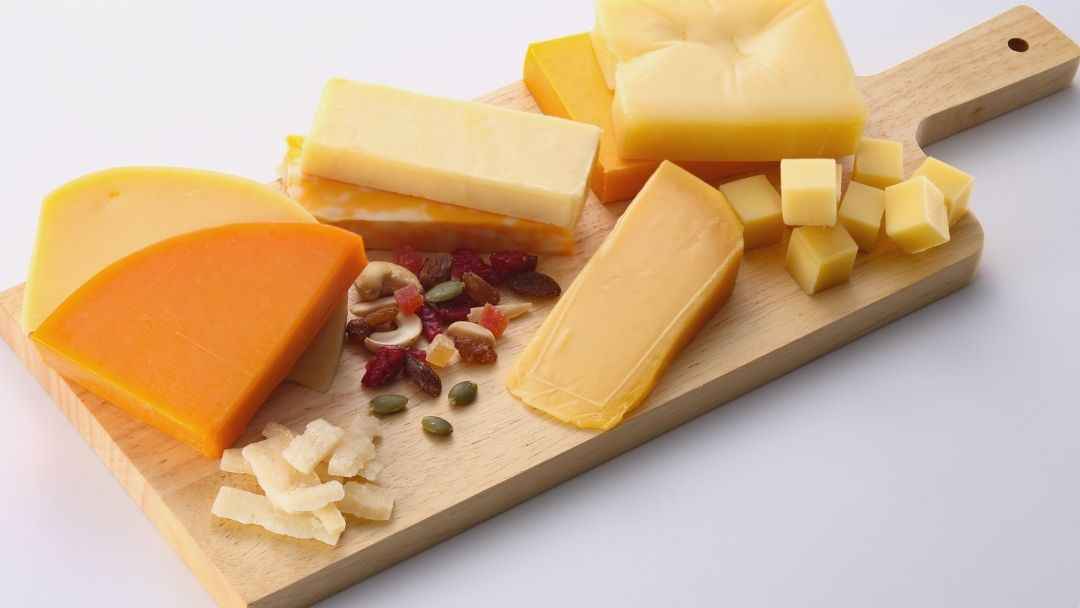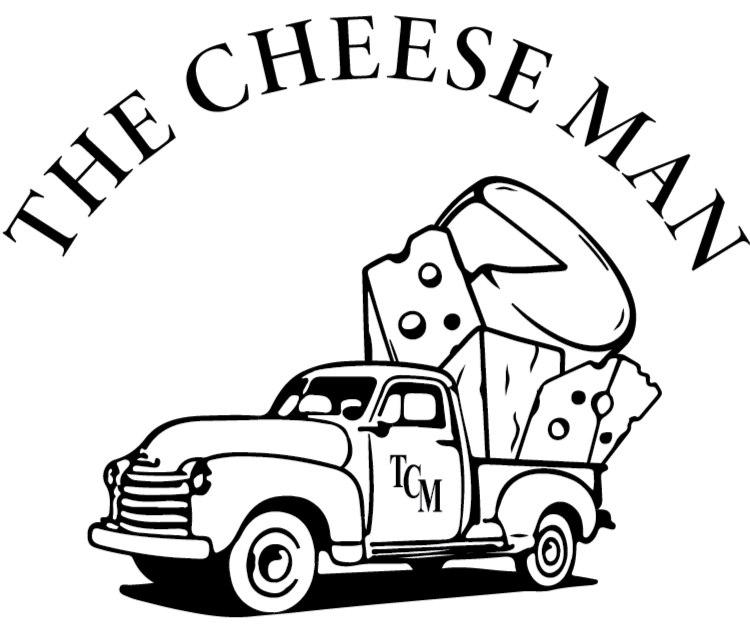
Is Cheese Good or Bad for You? Truth That Every Cheese Lover Needs to Know
Cheese has always sparked debate: some say it’s a delicious superfood; others treat it like a guilty pleasure. As The Cheese Man, Dubai’s leading cheese shop and specialist in cheese platters, charcuterie boards, and premium gourmet products, we know one truth:
Cheese is incredibly healthy when enjoyed correctly and incredibly tasty regardless.
In this blog we will break down everything science, nutrition, and decades of cheese craftsmanship tell us about cheese, health, benefits, risks, smarter choices, and how to enjoy cheese without overindulging. Whether you're building a luxurious charcuterie platter, preparing a cheese board in Dubai, looking for corporate gift ideas, or just curious about daily cheese health, this guide has everything you need.
Quick Answers for the Curious Cheese Lover
These are fast takeaways everyone asks us at The Cheese Man when ordering cheese boards, cheese presents, or charcuterie platters. But this time, we’ll explain each one clearly:
Yes, cheese can be healthy when eaten in moderation.
Cheese is a nutrient-dense whole food rich in protein, minerals, and fatty acids. Its healthiness depends on portion size, variety chosen, and overall diet balance. Small amounts daily can fit perfectly into a healthy lifestyle.
Cheese provides protein, calcium, vitamins, and probiotics.
These nutrients support bones, muscle repair, immunity, and gut health. Aged cheeses often contain probiotics that help digestion, something many customers want when creating balanced cheese boards.
Cheese can be high in saturated fat and sodium.
Not all cheese is the same. Some types contain higher levels of fat and salt, which should be monitored by people with hypertension or cholesterol concerns. Choosing the right cheese is key, something The Cheese Man specialises in recommending.
High-quality, flavour-rich cheese means smaller portions go a long way.
Premium cheeses (like those found in The Cheese Man's charcuterie boards or cheese platter Dubai collections) allow you to enjoy intense flavour without overeating.
You can enjoy cheese daily with smart choices and mindful pairing.
Pairing cheese with vegetables, fruits, nuts, and whole grains creates a balanced meal and transforms any simple platter into a premium, healthy cheese board.
The Health Benefits of Cheese: What You Should Really Know
Rich in Nutrients: Protein, Calcium, Phosphorus, Vitamins A & B12
Cheese is one of the few foods that naturally combines:
-
High-quality protein for muscle repair and appetite control
-
Calcium for bones, dental health, and metabolic function
-
Phosphorus to support bone mineral density
-
Vitamin A for immune strength and eye health
-
Vitamin B12 for energy, brain function, and red blood cells
These nutrients are why cheese is a staple in healthy snacks, gourmet cheese boards, and premium charcuterie platters crafted by The Cheese Man.
Bone Health
Cheese is exceptionally valuable for bone health because it naturally contains the ideal biological ratio of calcium, phosphorus, and high-quality protein, three nutrients that work together to keep the skeletal system strong and resilient. This powerful combination helps support:
-
Bone structure: Maintaining density and reducing the risk of osteoporosis.
-
Tooth enamel: Strengthening teeth and protecting them from decay.
-
Cartilage and connective tissues: Keeping joints flexible and reducing the likelihood of injury.
This makes cheese especially beneficial for adults, women, and anyone who enjoys a balanced diet. It’s one of the reasons many families buy cheese in Dubai from The Cheese Man to add daily nutrition to meals.
Muscle Support
Protein in cheese is complete, meaning it contains all essential amino acids. This helps:
-
Repair muscle tissue: Essential after physical activity, especially resistance or strength training.
-
Build strength after workouts: Providing the amino acids needed for muscle synthesis and recovery.
-
Maintain lean body mass: Supporting metabolism and long-term physical performance.
Because of these benefits, many athletes and fitness-focused individuals choose cheese for their post-training meals, incorporating options like cottage cheese, ricotta, or part-skim mozzarella to maximize recovery while keeping meals balanced and satisfying.
Gut Health: Probiotics in Aged Cheeses
Certain aged cheeses, such as cheddar, gouda, parmesan, and Swiss, naturally contain beneficial probiotics that support overall gut health. These live cultures can help:
-
Improve digestion: Helping the body break down food more efficiently.
-
Reduce bloating: Supporting smoother digestive processes and reducing discomfort.
-
Enhance gut flora: Promoting a healthier balance of good bacteria in the intestines.
-
Boost immunity: Strengthening the body’s natural defense system from within.
Because of these digestive and wellness benefits, aged cheeses make an excellent addition to everyday meals and even the most simple cheese board platters, adding both rich flavour and meaningful health advantages.
Heart Health: When Enjoyed in Moderation
When enjoyed in moderation, cheese can actually support heart health more than many people realise. Research suggests that the unique nutrient matrix in cheese may help:
-
Reduce LDL oxidation: Preventing harmful changes in cholesterol that contribute to heart disease.
-
Support normal blood pressure: Thanks to essential minerals like calcium and potassium.
-
Lower inflammation: Helping protect the body’s arteries and cardiovascular system.
-
Provide beneficial fatty acids: Such as conjugated linoleic acid (CLA), which supports heart health.
In fact, moderate consumption, especially of high-quality cheeses from The Cheese Man, has been associated with a lower risk of stroke and improved overall heart health, making cheese a delicious yet heart-conscious choice when selected and portioned wisely.
Potential Downsides and Considerations
High in Saturated Fat and Sodium
Some cheeses naturally contain higher levels of:
-
Saturated fat (affecting cholesterol if overconsumed)
-
Sodium (affecting blood pressure if eaten excessively)
This doesn’t mean cheese is unhealthy, but portion control matters. Lower-sodium and lower-fat cheeses like ricotta, cottage cheese, mozzarella, and parmesan are better for daily consumption.
Calories
Cheese is calorie-dense. A small amount contains a lot of energy, which can accumulate if you snack mindlessly.
This is why The Cheese Man focuses on balanced platter designs, using smaller but flavour-rich quantities so you enjoy more taste with fewer calories.
How to Incorporate Cheese Healthily
Practise Moderation
Simple rule:
"Enjoy cheese daily, but in reasonable portions: around 20 to 30 g per serving."
The Cheese Man’s curated cheese boxes always include portion guidance to help customers enjoy cheese confidently.
Choose Smarter
Choosing smarter, health-focused cheeses can make a significant difference in how cheese fits into your daily diet. Some varieties naturally offer higher protein, lower fat, and lower sodium, making them better suited for regular consumption without compromising on flavour or nutrition. The following cheeses are especially beneficial:
-
Cottage cheese: Low in fat, high in protein, and extremely versatile, making it ideal for breakfasts, snacks, or light meals.
-
Ricotta: Soft, creamy, and naturally lower in fat when made part-skim; great for both sweet and savoury dishes while being gentle on digestion.
-
Parmesan: Aged and flavour-intense, meaning you can use very small amounts for big taste; also naturally low in lactose.
-
Part-skim mozzarella: Mild, stretchy, and lighter than full-fat mozzarella, offering a balanced ratio of protein and fat.
-
Feta (in small amounts): Rich in flavour with a crumbly texture, making it easy to use sparingly without losing impact.
These cheeses are excellent choices for creating a healthy cheese platter board or a beautifully balanced charcuterie board, allowing you to enjoy rich flavour while keeping nutrition and wellness in mind.
Use Cheese as a Flavor Enhancer
Using cheese as a flavour enhancer is one of the healthiest and most effective ways to enjoy it without overconsuming calories or saturated fat. Cheese doesn’t need to be the main ingredient in a dish to make a big impact; even a small amount can elevate the taste, texture, and overall experience of your meals. For example:
-
Sprinkle parmesan on soups: A tiny handful adds depth, saltiness, and richness without overwhelming the dish.
-
Add feta to salads: It's tangy, salty profile instantly brightens fresh greens and vegetables, even in small quantities.
-
Add aged cheddar to sandwiches: A thin slice provides bold flavour and sharpness, making your sandwich more satisfying.
-
Use ricotta for creaminess: Light, airy, and mild, ricotta adds a creamy texture to dishes without heavy fats.
This approach enhances flavour while keeping portions reasonable, a core philosophy that The Cheese Man incorporates into all cheese board ideas, ensuring every platter is delicious, well-balanced, and mindful of healthy eating principles.
Pair with Healthy Foods
Pairing cheese with healthy, nutrient-rich foods is one of the smartest ways to enjoy it while maintaining balance and boosting overall wellness. A thoughtfully curated cheese plate becomes both delicious and nourishing when complemented with wholesome accompaniments that enhance flavor, texture, and nutritional value. A well-balanced cheese plate typically includes:
-
Whole-grain crackers: Provide fiber, complex carbs, and a satisfying crunch that pairs beautifully with both soft and hard cheeses.
-
Olives: Add healthy fats and a briny contrast that balances creamy or aged cheeses.
-
Nuts: Offer protein, crunch, and heart-healthy fats that round out the plate.
-
Fresh fruits: Grapes, figs, berries, or apple slices bring natural sweetness and acidity to cut through richness.
-
Vegetables: Carrots, cucumbers, bell peppers, and cherry tomatoes add freshness, hydration, and extra nutrients.
-
Honey or chutneys: Provide a touch of sweetness or spice, elevating cheese flavors with minimal portions.
These complementary ingredients transform a simple cheese serving into a flavorful, health-forward experience, and they are exactly what make The Cheese Man’s premium cheese and platter selections so popular, especially for luxury corporate gifts, corporate welcome gifts, and high-end cheese presents across the Dubai, UAE.
FAQs
Q1. Is cheese good or bad for your health?
A: Cheese is healthy when eaten in moderation, providing protein, calcium, and vitamins. The type and portion size determine health impact.
Q2. Does cheese cause weight gain?
A: Not directly. Overeating calorie-dense cheeses can contribute to weight gain, but balanced portions support satiety and weight control.
Q3. What cheeses are best for weight loss?
A: Cottage cheese, ricotta, part-skim mozzarella, and parmesan, all available at The Cheese Man.
Q4. Is cheese high in protein?
A: Yes. Hard cheeses like cheddar and parmesan provide significant protein per gram.
Q5. Can lactose-intolerant people eat cheese?
A: Yes, many aged cheeses contain very low lactose and are easier to digest.
Q6. Is cheese bad for cholesterol?
A: Excess saturated fat may raise LDL in some individuals. Low-fat cheeses and moderate intake are safer options.
Q7. Is feta healthier than cheddar?
A: Feta is lower in fat but higher in sodium. Cheddar is higher in protein. Which is healthier depends on your dietary needs.
Q8. What is the healthiest cheese?
A: Cottage cheese, ricotta, mozzarella, and parmesan are excellent health-friendly options.
Q9. Can cheese be part of a heart-healthy diet?
A: Yes, when enjoyed in small portions and paired with fresh foods like vegetables and fruits.
Q10. Is cheese good for bone health?
A: Absolutely. Cheese provides calcium, phosphorus, and protein, the essential trio for strong bones.
Q11. What cheese is best for a charcuterie platter?
A: A mix of aged, soft, hard, and creamy cheeses such as brie, cheddar, gouda, manchego, and goat cheese, all curated expertly by The Cheese Man.
Q12. Where can I buy premium cheese in Dubai?
A: From The Cheese Man, offering gourmet selections, cheese boards, and luxury cheese gifts across the UAE.


